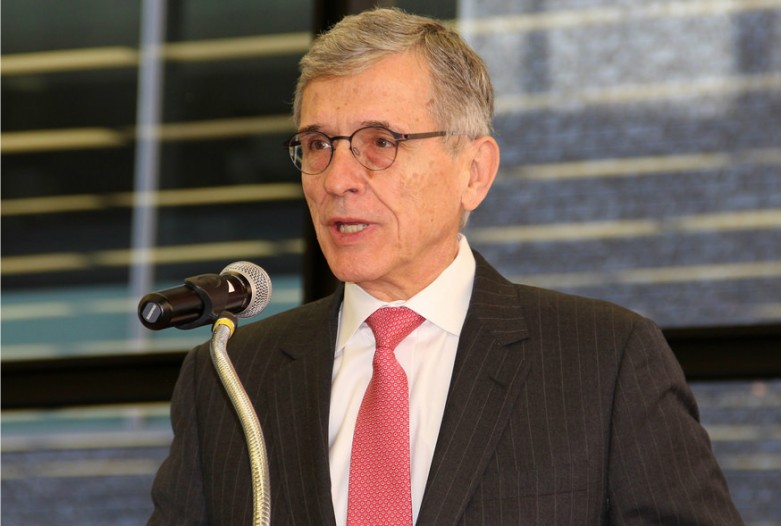
Tom Wheeler Promises Community Broadband --- But Can He Deliver?
Last week FCC Chairman Tom Wheeler took to his blog to sing the praises of community broadband.
“Removing restrictions on community broadband,” he wrote, “can expand high-speed Internet access in underserved areas, spurring economic growth and improvements in government services while enhancing competition.”
Those “restrictions” are the corporate-friendly laws in 20 states that prohibit communities from creating their own networks. The force behind many of these laws is the American Legislative Exchange Council (ALEC), the group ALEC Exposed aptly describes as a “pay-to-play operation where corporations buy a seat and a vote on ‘task forces’ to advance their legislative wish lists.”
Just as a coal company might pay ALEC to draft a bill shielding corporate polluters, telecoms bankrolled ALEC’s “Municipal Telecommunications Private Industry Safeguards Act.”
As the name implies, this “model legislation” is indeed designed to safeguard private industry — to the detriment of everyone else.
“Promoted under the guise of ‘fair competition’ and ‘leveling the playing field,’” notes PRWatch, “this big telecom-supported bill imposes regulations on community-run broadband that they would never tolerate themselves.”
What makes these bans even more infuriating is the ISPs’ refusal to upgrade or even serve many rural and remote regions of the country. Companies like AT&T and Verizon don’t want to spend the money on building out their networks everywhere in these states, but they also don’t want any communities — whether rural or not — to be able to take matters into their own hands. These ISPs would rather maintain the status quo — which means delivering subpar service at sky-high prices.
In recent years, Google has seemed like a bit of a savior to communities contending with snail-like dial-up speeds: Its fiber network has been a boon to Kansas City, whose startup scene has grown. Perhaps that’s why a particularly restrictive bill that would have prohibited other communities in Kansas from creating their own networks died earlier this year.
But Google isn’t a perfect solution and it can’t wire everyone — especially when these bans can impact the company’s decisions about where to build its next networks. Boulder, which already has 100 miles of fiber-optic cable, might have seemed like a prime candidate for Google. But Colorado’s ban is likely why Boulder didn’t make the cut, argues a recent story in GigaOm. Boulder still has a chance to build its own network but it has to jump through hoops to do it: The law requires city voters to approve a ballot measure to sidestep the ban.
Other states have bans that are even more difficult to challenge: In Pennsylvania, Ars Technica writes, “Municipalities cannot sell broadband services if a ‘local telephone company’ already provides broadband, even if the local telephone company charges outrageously high prices or offers poor-quality service.”
In Nebraska, only power utilities can provide broadband services. To complicate matters further, these utilities, notes Attorney James Baller, “are permanently prohibited from providing such services on a retail basis.”
The impact of all these restrictions makes Tom Wheeler’s blog post even more significant. Toward the end he offers fighting words about these state bans:
If the people, acting through their elected local governments, want to pursue competitive community broadband, they shouldn’t be stopped by state laws promoted by cable and telephone companies that don’t want that competition.
I believe that it is in the best interests of consumers and competition that the FCC exercises its power to preempt state laws that ban or restrict competition from community broadband. Given the opportunity, we will do so.
It’s not clear yet how much of an opportunity Chairman Wheeler really has, but we’re glad he’s ready to fight for freedom of choice and competition. We’re going to hold him to that on this issue — and on all the others where he hasn’t yet been willing to fight.
Original photo by Flickr user ALA Washington Office